2021 Resident Scholars Colloquium Series
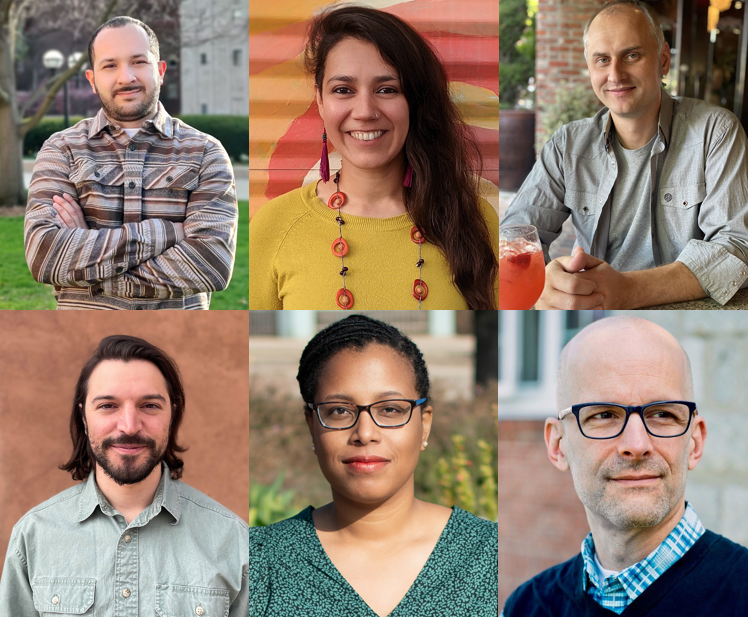
The School for Advanced Research (SAR) is pleased to announce the 2021 resident scholar colloquium series. Starting September 22 and hosted online, scholars will present every other Wednesday throughout the fall. Learn more about each presentation below.
For over four decades, SAR has awarded nine-month appointments to a selection of scholars who have completed their research, providing them with the time, space, and collaborative support needed to prepare manuscripts or dissertations on topics important to the understanding of humankind. Fellows develop their work in a unique learning environment on the historic Santa Fe, New Mexico, campus that provides a combination of solitude, freedom from institutional responsibilities, and the lively exchange of ideas. Scholars who complete a residency at SAR become part of an alumni network of nearly three hundred scholars in over thirty countries who have received prestigious academic appointments and other influential roles.
This year’s fellowships are funded in part by the Weatherhead Endowment, the Katrin H. Lamon Endowment for Native American Art and Education, the Andrew W. Mellon Foundation, and Paloheimo Foundation.
Chelsi West Ohueri
Weatherhead Fellow
Affiliation at time of award: Assistant Professor, Department of Slavic and Eurasian Studies, University of Texas, Austin
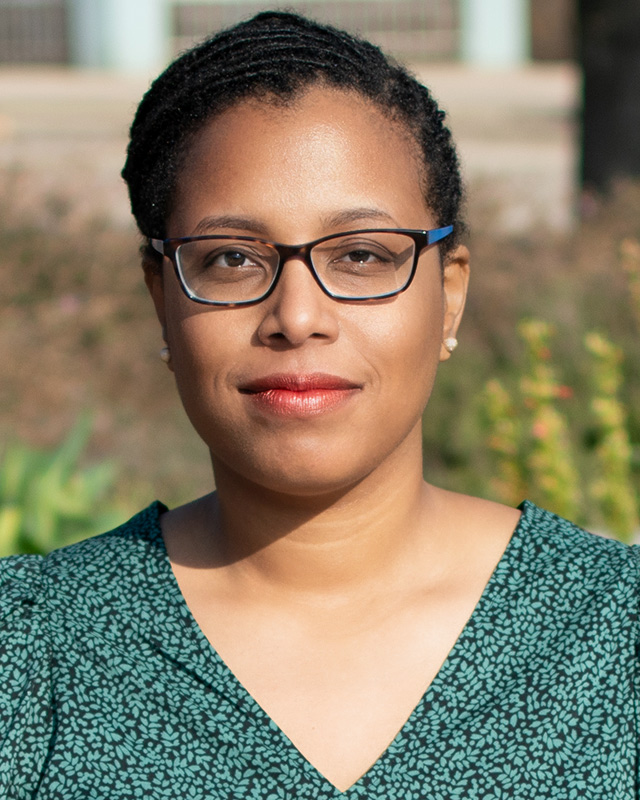
In a moment of intense worldwide racial reckoning, Ohueri’s research underscores the need for understanding race and race-making in a global context. Consciously refusing to import US-centric frameworks into an examination of race in Albania, she queries what a study of racial belonging there can reveal about the worldwide reverberations of race. Her work illustrates how Albania’s unique history of isolation, trauma, and national narratives of belonging have shaped racial logics of whiteness, blackness, otherness, and Europeanness. During her talk, Ohueri will demonstrate how her methodological and theoretical frameworks are shaped by anthropology, area studies, ethnic and racial studies, and ethnographic storytelling. Learn more about this project.
Register to attend this scholar’s colloquium // September 22, 2021 // 2pm (MDT)
M. Benjamin Junge
Weatherhead Fellow
Affiliation at time of award: Associate Professor, Department of Anthropology, SUNY New Paltz
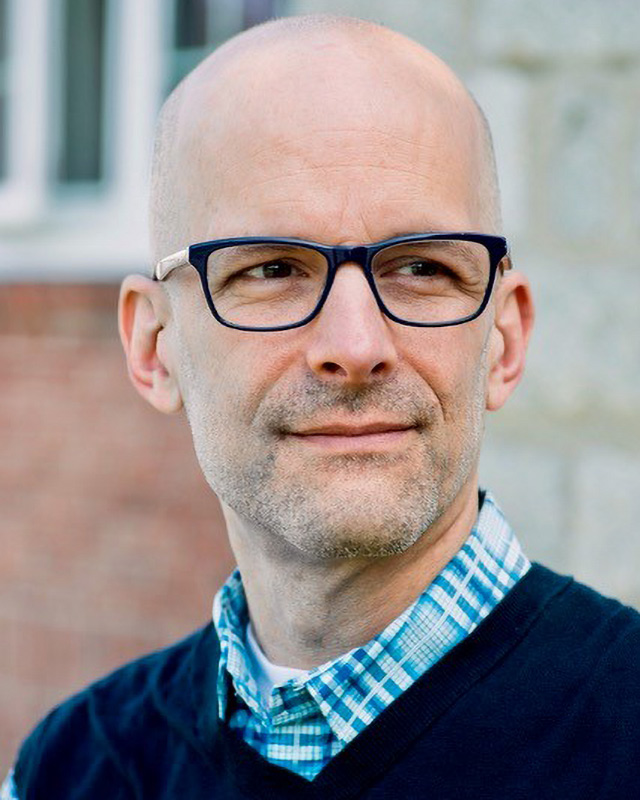
Junge’s presentation will outline his plan for an ethnographic monograph, provisionally entitled “Family Is Everything: Generational Tensions, Cultural Memory, and Political Subjectivity in Recife, Brazil.” Drawing from a three-year, National Science Foundation–funded investigation, the book project examines formations of political subjectivity among families who experienced upward socioeconomic mobility during the twenty-first century’s first decade, but faced precarity in subsequent years because of Brazil’s spiraling economic and political crises. As its common thread, the project centers on the narratives of one extended family whose experiences speak to the hopes and frustrations of millions of “once-rising poor” Brazilian families in times of growth and crisis. Junge presents an anthropological analysis of political sentiment and cultural memory in these poor and working-class families. Learn more about this project.
Register to attend this scholar’s colloquium // October 6, 2021 // 2pm (MDT)
Andy Aguilera
Mellon Fellow
Affiliation at time of award: PhD candidate, Department of History, University of Michigan, Ann Arbor

“God knows how long we will remain here”: Cristero Longing and Activism in Los Angeles during the Cristero Rebellion and La Segunda, 1926–1936
Between 1926 and 1929, militant Catholics protested the implementation of anti-clerical policies codified in the Mexican Constitution of 1917 by waging war against federal forces. The Cristero Rebellion illustrated that the revolution’s ideals were not uniformly celebrated and that definitions of patria remained polarizing. In the United States, the revolutionary era also helped shape US-Mexico borderland communities through the exponential growth of Mexican migration during this period. Seeking to escape the instability in Mexico, this “revolutionary diaspora” brought their ideas of the revolution with them and, more broadly, articulated their notions of mexicanidad in these new spaces. Focusing on the Cristero Rebellion in Los Angeles from the intimate viewpoint of a Cristero family and the formation of the Comité Popular de Defensa Mexicana, Aguilera illustrates how Cristero refugees, exiles, and migrants negotiated their cultural identities through their longing for and ideas of a true Mexican patria. Learn more about this project.
Register to attend this scholar’s colloquium // October 20, 2021 // 2pm (MDT)
Klinton Burgio-Ericson
Mellon Fellow
Affiliation at time of award: Postdoctoral Fellow, Department of Anthropology, University of New Mexico
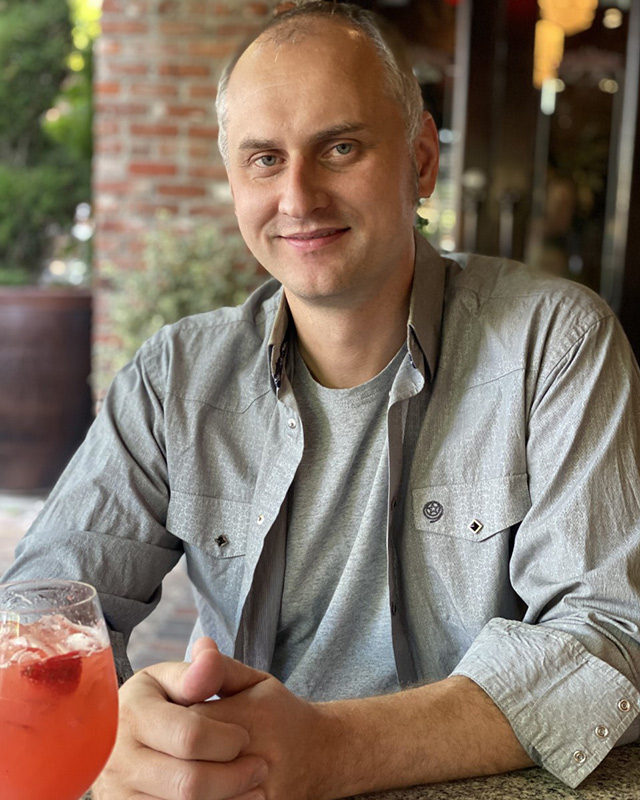
Contrary to popular belief, early colonial missions in New Mexico were not cloistered retreats for the Spanish missionaries who hoped to convert Pueblo Indians to Christianity. Rather, missions were living and working places made up of mixed households of mendicant friars and coerced Indigenous laborers, through whom traces of Pueblo cosmology, belief, cuisine, and practices became entangled with Spanish culture. In the architectural forms and practices of their missions, friars invoked millenarian and monastic ideals, while Pueblo peoples persevered in conceiving of their towns as sacred centers in an animate world. Drawing upon primary sources, oral histories, archaeological evidence, and comparative analysis, Burgio-Ericson considers the intersections of ritual and everyday life in seventeenth-century New Mexico by focusing on a Franciscan mission at the ancestral Zuni town of Hawikku Pueblo. His research illuminates an understudied yet foundational chapter of American history, emphasizing the crucial role of Native and Latinx people in shaping the contested nature of today’s society. Learn more about this project.
Register to attend this scholar’s colloquium // November 3, 2021 // 2pm (MST)
Dmitri Brown
Katrin H. Lamon Fellow
Affiliation at time of award: PhD candidate, Department of History, University of California, Davis
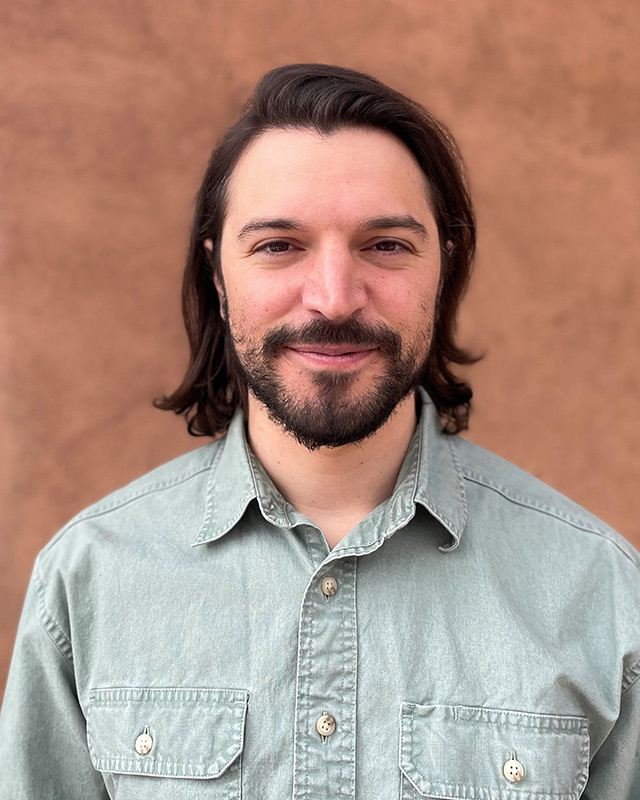
In late 1942, Manhattan Project officials evaluated potential locations for their scientific headquarters. They found a site that met their needs on the Pajarito Plateau in the western hills of the Tewa Pueblo world. Employing traditional patterns and dynamics, Tewa communities had long drawn strength from accommodating potentially shattering modern incursions like the railroad, pottery markets, and archaeology. They used these same traditions and experiences to meet the coming of the atomic age. Viewing the Manhattan Project in the context of the Tewa world, Brown’s talk offers an opportunity to understand the connections between physics, history, and Tewa philosophy. Learn more about this project.
Register to attend this scholar’s colloquium // November 17, 2021 // 2pm (MST)
Adriana Linares-Palma
Paloheimo Fellow
Affiliation at time of award: PhD candidate, Department of Latin American Studies, University of Texas, Austin
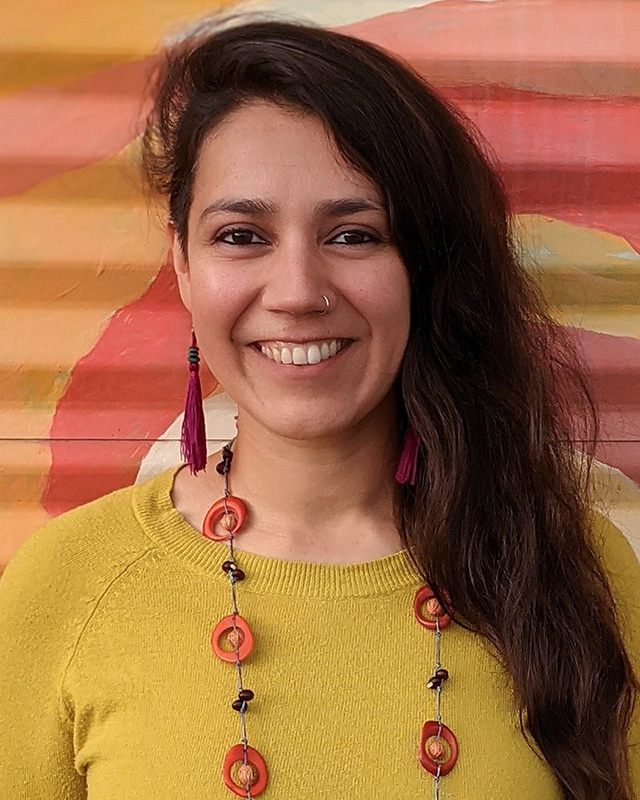
In this talk, Linares-Palma will focus on the politics of archaeological knowledge production in Guatemala. Analyzing the current state of archaeology and its national agenda in relation to the research of the past, Linares-Palma explores what has been accomplished in efforts to decolonize the field; how community-based research at San Juan Cotzal positions archaeology against social inequality; and what principal challenges remain. Her research examines the relationship between Indigenous communities and their spirituality, memory, and archaeological sites, and she stresses the right of Indigenous peoples to prior consultation in archaeological research. Learn more about this project.
Register to attend this scholar’s colloquium // December 1, 2021 // 2pm (MST)